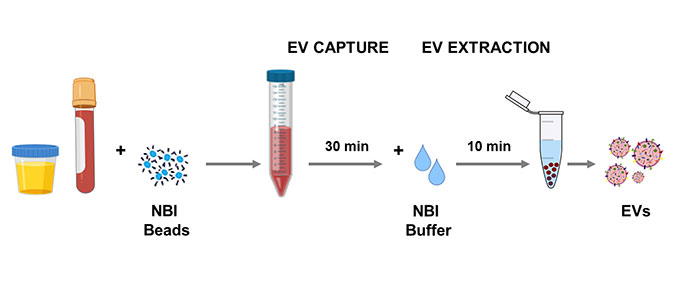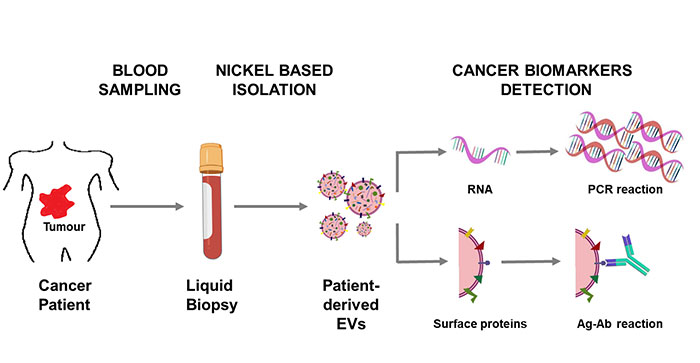Our
technology
Extracellular vesicles (EVs) are membranous particles, abundantly released by the cells in the extracellular space and in the biological fluids. EVs contain nucleic acids, proteins and lipids and their molecular content mirrors the one of the cell of origin. They are therefore a valuable source of information and a faithful representation of the state of health of the releasing cells.
AEVA is leveraging on its proprietary EVs isolation technology to capture EVs from biological fluids in a rapid, reproducible, cost-effective and high-throughput way. The innovative method is called NBI (Nickel Based Isolation) and exploits beads functionalized with nickel cations to recover intact EVs, still carrying their original features and thus usable for molecular characterizations of their biological content.
You can find additional information about NBI isolation method by checking the protocol details on Bio-protocol.

AEVA is predominantly applying NBI technology to the field of cancer research, coupling the isolation method to ultrasensitive molecular approaches. Patient-derived EVs are isolated from liquid biopsies (as blood withdrawal), minimally invasive procedures, that can be easily obtained and repeated, ideal for a precise and personalized diagnosis.
The company aims at developing diagnostic tools, based on the analysis of patient-derived extracellular vesicles, for an earlier detection of cancer and for the measurement of biomarkers in liquid biopsies of cancer patients. The aim is to monitor tumour evolution and response to therapies. The research describing NBI method and the downstream applications is published on EBioMedicine.

